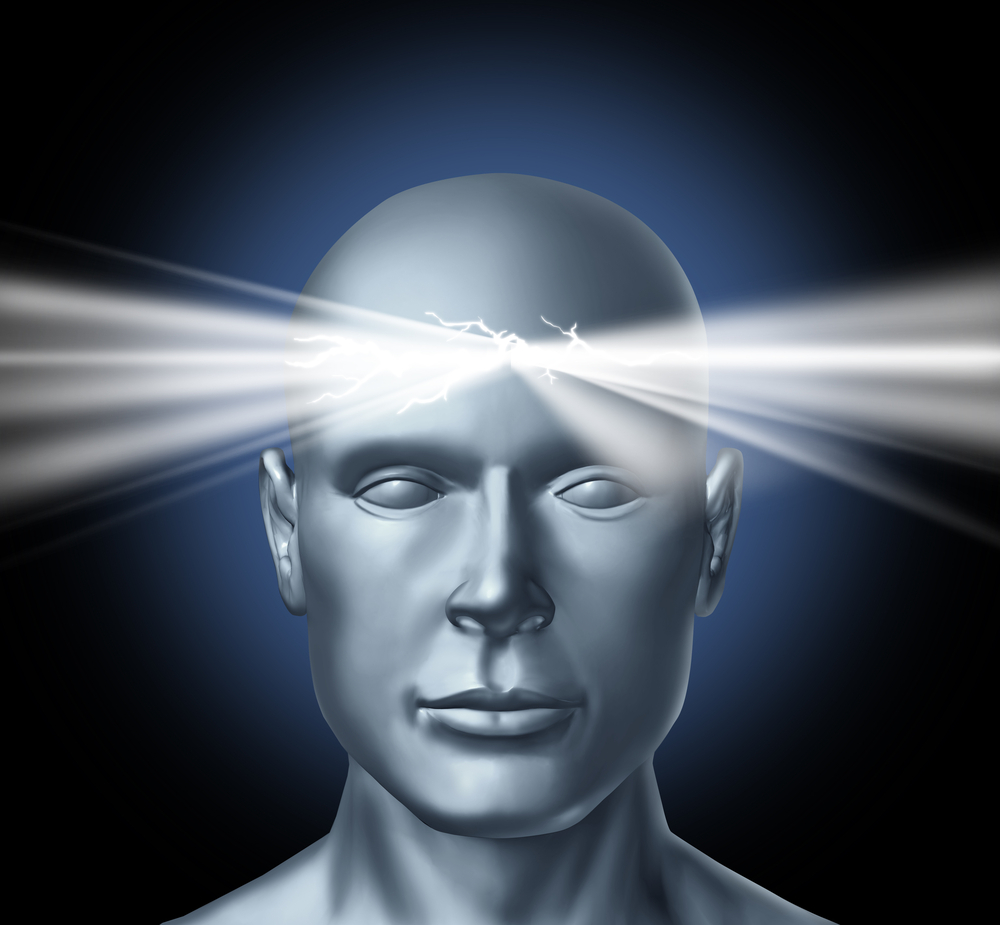ESP & Psychic Powers: Claims Inconclusive
The idea of special — apparently paranormal — mental abilities such as psychic powers or extrasensory perception (ESP) has intrigued people for centuries. There are several claimed varieties of psychic powers, including telekinesis (or psychokinesis, the ability to move objects through mind power); precognition (knowing future events before they happen); and telepathy or clairvoyance (French for "clear sight" — describing things at a remote location). It's the stuff of fiction and movies — but is it real?
Many Americans believe in psychic ability (about 15 percent of the country, according to a 2005 Baylor Religion Survey; and 41 percent in another survey), but scientific evidence for its existence remains elusive. And it's not for lack of trying; people — and the U.S. government — have spent decades searching for ESP.
Government ESP research
During the Cold War, rumors circulated that the Russians were developing an army of psychic spies; in response, the U.S. military created a program to examine whether psychics could be useful in military applications. The program, called Stargate, tested "remote viewers" to see if their feelings and visions were accurate. The research continued for about two decades, ending in the mid-1990s with little apparent success. Finally the CIA took over the program and asked scientists to review the results. They concluded that the psychics did no better than chance, and that the psychic information was neither validated nor useful. Project Stargate failed and was shut down.
Some suggest that the fact that Stargate program even existed is evidence that there must be some validity to psychic powers (otherwise it would not have been created and funded for years). Yet countless programs have been funded despite never having been proven valid or effective; the U.S. government spending money on fruitless programs is hardly novel. Some believe that top-secret government programs still use psychics today, though high-profile intelligence failures (i.e., if accurate psychics are employed by the government, why did it take a decade to find Osama bin Laden?) cast doubt on such conspiracy claims.
ESP in the laboratory
Though the government concluded that psychic power doesn't exist (or, if it does, the information it provides is no more accurate than random chance guesses), ESP research has continued. Unfortunately, ESP has not fared well under scientific conditions, whether in the private or public sector.
Get the world’s most fascinating discoveries delivered straight to your inbox.
Early experiments used "Zener cards" with common symbols such as circles, squares, and wavy lines selected at random and which a psychic would try to guess. In the 1930s and 1940s a researcher at Duke University named J.B. Rhine became interested in the idea that people could affect the outcome of random events using their minds. Rhine began with tests of dice rolls, asking subjects to try and influence the outcome through concentration. Though his results were mixed and hardly robust, they were enough to convince him that there was something mysterious going on. Unfortunately for Rhine his experiments failed a crucial scientific test, that of replicability: other researchers were unable to duplicate his findings. Errors were found in his methodology, and the topic faded away. By the 1960s, computer technology allowed more sophisticated tests, including using psychic powers to influence the outcome of random number generators.
In 1976, several children who claimed to be able to bend spoons with their minds were tested in controlled experiments at the University of Bath. For a while the results seemed promising, and experimenters believed they might finally have found real scientific evidence of psychokinesis. Unfortunately the children were caught cheating on hidden cameras, physically bending spoons with their hands — not their minds — when they thought no one was watching.
Inconclusive results
The problem is not that skeptics and scientists refuse to take ESP seriously; indeed, researchers have spent decades trying to find good evidence. One famous research organization, the Princeton Engineering Anomalies Research group, led by Prof. Robert Jahn, spent nearly three decades searching for psychic ability, usually getting mixed and inconclusive results. It finally closed its doors in 2007, never having found hard scientific evidence for ESP.
Still, others continue the research. An emeritus professor at Cornell University, Daryl Bem, spent much of the past decade conducting experiments that he believes demonstrate that psychic powers exist. Bem tested the ability of college students to accurately sense random events, such as detecting where an image will flash on a computer screen. Bem's research was published in "The Journal of Personality and Social Psychology," a respected psychology journal. The study made national news, but researchers who examined Bem's studies found significant statistical and methodological flaws, suggesting that his apparent success was likely an artifact of those errors.
Bem stood by his findings, acknowledging some mistakes and dismissing others, and encouraged others to replicate his ESP studies. If he had really found scientific evidence for psychic ability, others should be able to duplicate it. Two different teams of independent researchers replicated Bem's research — and both failed to find any evidence for ESP. The studies were published in the journals "PLoS ONE" in 2011 and in the "Journal of Personality and Social Psychology" in 2012.
Overall the vast majority of ESP studies can best be characterized as inconclusive. Some studies suggest evidence of some sort of psychic ability; others don't. Often the effect sizes were statistically significant but very small — not much above random chance. Most of the studies that do show an effect (like Daryl Bem's) were never able to be replicated.
Ironically, if the ESP researchers are right and psychic ability does exist, it seems to be a very weak effect. What's the point of using psychics if their guesses aren't much more accurate than the average person's? Presumably the whole point of ESP is that it should be much more accurate and valid than chance or an informed guess — except that it isn't. Those who believe in ESP are undeterred by the consistent lack of good evidence, and insist that one day scientists will find hard evidence of psychic abilities. That may be true, but ESP believers said the same thing half a century ago.
Benjamin Radford is deputy editor of "Skeptical Inquirer" science magazine and author of six books, including "Scientific Paranormal Investigation: How to Solve Unexplained Mysteries." His website is www.BenjaminRadford.com.


